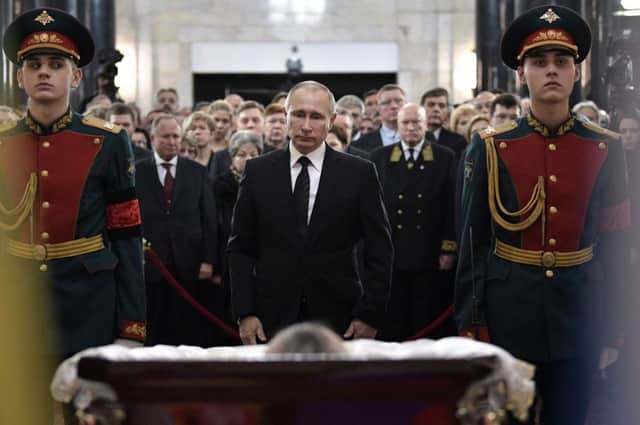Ambassador's murder deepens fallout from Syrian war in Turkey


Turkey’s toxic combination of problems includes a Kurdish insurgency at home and state purges following a failed coup attempt in July, meaning the security situation will remain extremely tenuous for a while.
While Russia and Turkey suspect the killer of ambassador Andrei Karlov was part of a wider conspiracy, the Turkish government has come under scrutiny for its tolerance – or sponsorship – of Islamist rebel groups in Syria in recent years that may have indirectly radicalised some young Turks.
Advertisement
Hide AdAdvertisement
Hide Ad“You have a blowback effect,” said Halil Karaveli, a Sweden-based senior fellow at the Central Asia-Caucasus Institute and the Silk Road Studies Program.
He said a mix of hardline Turkish nationalism and Sunni Muslim fundamentalism had been prospering in some quarters in Turkey, creating the potential for homegrown violence.
Whatever motivated gunman Mevlut Mert Altintas, an off-duty policeman killed by police after shooting Mr Karlov at a photo exhibition in Ankara on Monday, has not been confirmed.
He shouted religious phrases and appeared to condemn Russian bombardments of rebel-held neighborhoods of Syria’s Aleppo city – the shooting followed protests by Turks who criticised Russia’s support for Syrian president Bashar al-Assad.
Turkish president Recep Tayyip Erdogan has blamed the movement of US-based Muslim cleric Fethullah Gulen for the assassination, while Russia has said conclusions should be left to the investigators.
Mr Gulen is already blamed for the failed military uprising in July that led to the imposition of a state of emergency, an extension in pre-trial detention, the arrest of around 38,000 people and the purging of more than 100,000 from government jobs.
Turkey and Russia, which have endured difficult relations over the past year or so, described the killing as an attempt to disrupt an improving alliance that they hope will stabilise Syria and consolidate their influence there.
The political calculations on Syria come as Turkey has endured regular bombings and other attacks, shaking the government of Mr Erdogan even as he seeks to increase the power of his post by pushing for constitutional changes.